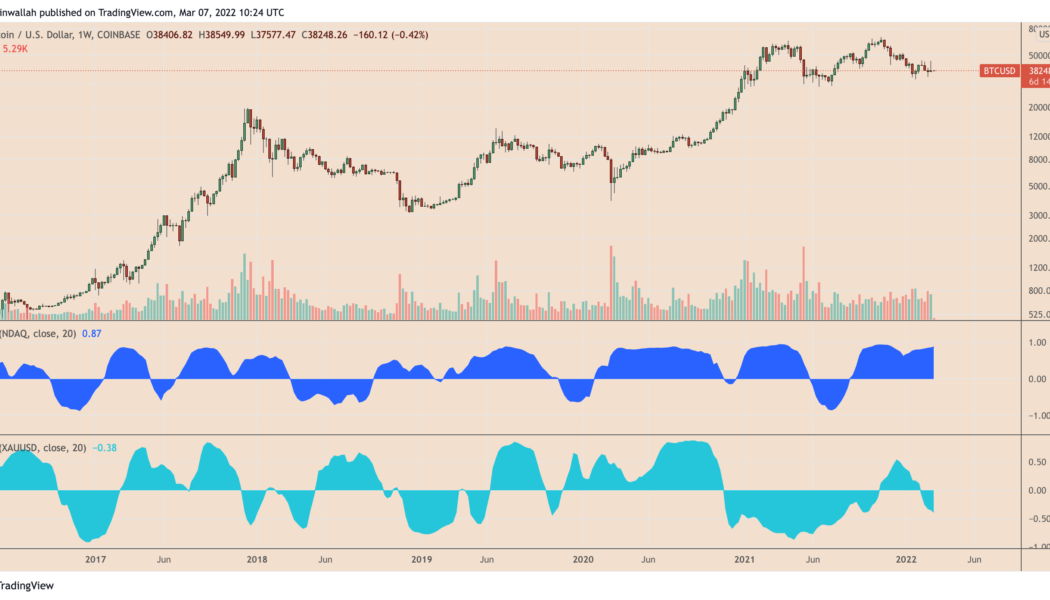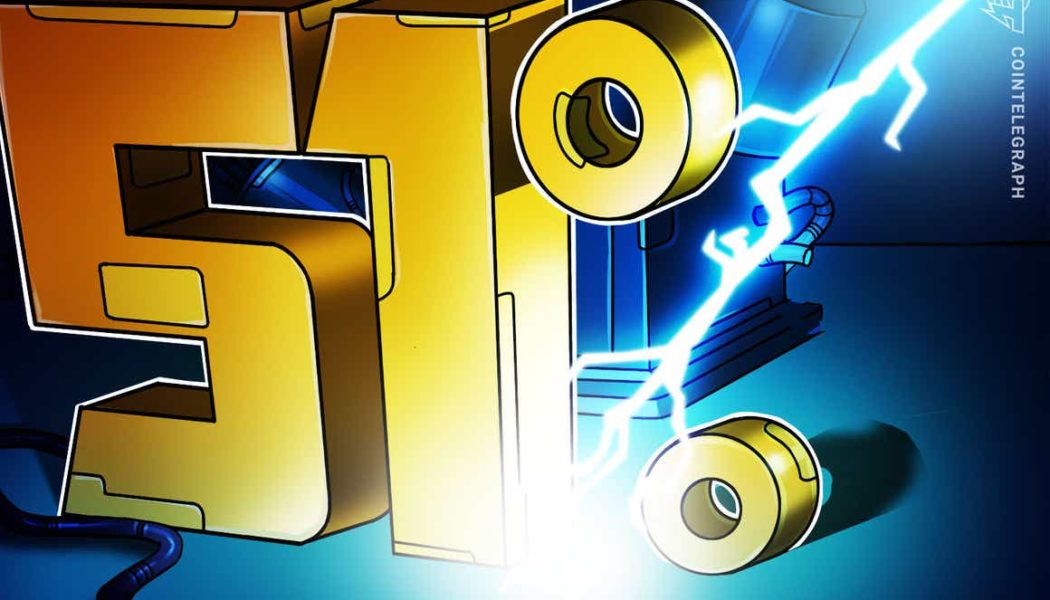crypto
Crypto startup employee quits after realizing telltale signs of failure
The startup ecosystem has historically played a vital role in shaping the crypto community into an almost $2 trillion industry. However, numerous players bank on this notion to consistently overpromise and underdeliver the big WAGMI dream. Back in December 2021, Redditor busterrulezzz thought they landed their dream job after being hired by a crypto startup — only to realize that they were now a part of the problem and resigned from the position two months later. Redditor u/busterrulezzz: Source: Reddit As narrated by busterrulezzz: “First of all, the level of disorganization and chaos was absolute madness. Each morning we had a different objective, based on the most recent trend in the market.” The Redditor alleged that the crypto startup, which shall remain unnamed due to an active ...
LimeWire Returns As NFT Marketplace to Right the Wrongs of Its Troubled Past
12 years after closing shop, LimeWire is back to reckon with its controversial past—and pave a new path forward. For the uninitiated, LimeWire was the go-to peer-to-peer file sharing service that dominated the early 2000s. Predating the all-access model of today’s streaming services, the controversial platform was used as a workaround for music fans who didn’t want to purchase individual songs or albums via iTunes and other digital music stores. It was as simple as downloading and playing, though it did put even the most formidable antivirus software products through the wringer. LimeWire’s reign effectively came to an end when successful lawsuits initiated by major record labels and music rights-holders resulted in a staggering $105 million in fines. LimeWire’...
How HAL and Aldrin are helping to keep crypto assets secure during bear markets
Crypto bear markets are known for their downturns and their liquidations for investors who are trading with leverage. On top of that, decentralized finance, or DeFi, projects can become targeted by hacks or suffer rug pulls, leading to enormous losses for investors of their tokens. Now new software seeks to alert investors in real-time about potential risks to their positions. Users and executives from two such services, HAL and Aldrin, explain. HAL is a Web3 data infrastructure tool allowing companies or traders to track, monitor and trigger data. HAL recently launched simple API notifications on Avalanche (AVAX), which seeks to enable users on the blockchain to automate notifications of risky positions. Meanwhile, Aldrin is the first fully-audited decentralized exchange, or DEX, on...
3 reasons why Bitcoin can rally back to $60K despite erasing last week’s gains
Bitcoin (BTC) plunged to below $38,000 on Monday, giving up all the gains it had made last week, which saw BTC/USD rally over $45,000. BTC back below $40K as oil soars The losses appeared primarily in part due to selloffs across the risk-on markets, led by the 18% rise in international oil benchmark Brent crude to almost $139 per barrel early Monday, its highest level since 2008. Nonetheless, Bitcoin’s inability to offer a hedge against the ongoing market volatility also raised doubts over its “safe haven” status, with its correlation coefficient with Nasdaq Composite reaching 0.87 on Monday. BTC/USD weekly price chart featuring its correlation with Nasdaq and Gold. Source: TradingView Conversely, Bitcoin’s correlation with its top rival gold came to be minus 0...
This Software Lets You Design Trippy Visuals of Your Music—Then Mint Them As NFTs
We know—NFT this, metaverse that. But before you grumble at this umpteenth blockchain tech platform, consider its value for music producers. VOID is a Web3-based platform that allows musicians to generate and customize kaleidoscopic visuals with their own songs. Created by Dutch developer Triptcip, the sequencing software essentially takes your music and spits out a trippy, beat-reactive mosaic. Triptcip’s visual synthesizer, VOID. Triptcip VOID, which Triptcip says is the first of its kind, aims to arm music producers with an easily accessible visual synthesis tool. Visual designers have enjoyed the spoils of the digital art revolution, but many musicians have found themselves stuck in a new kind of limbo. Without a budget to join forces with a capable designer or a trusted partner au cou...
Inside the Sale of Coachella’s Lifetime Passes and $1.4 Million NFT Collection
Coachella, one of the world’s most illustrious and profitable music festivals, recently announced the launch of three NFT collections: Sights and Sounds, Desert Reflections, and Coachella Keys. NFTs (non-fungible tokens) are digital assets—such as photos, visual artwork, or audio—stored on a blockchain. The tokens are immutable and they are purchased, sold, and traded using cryptocurrency. Coachella launched its own native NFT marketplace, which was built by FTX for the Solana blockchain. The festival’s three collections offer a range of digital photos, soundscapes, and posters that can be redeemed for real-world experiences. Perhaps the most significant, however, is the Coachella Keys collection. Each of its 10 collectibles grant their owners lifetime passes to Coachella. Afte...
The Music In Coinbase’s Viral Super Bowl Ad Was Produced By Com Truise and Samples The Beatles
Coinbase’s viral Super Bowl advertisement was a hit. For Coinbase, it was a hit to their servers. The commercial was simply a QR code that bounced around the screen like the classic DVD logo in the 90s. It was a simple and ingenious marketing strategy, and the traffic that Coinbase received during the ad’s 60-second run time temporarily crashed the company’s servers. But the music was also a hit. The track from the commercial was created by electronic music veteran Com Truise, who sampled the melody of a motown classic and produced an eerie chillwave song. “Money (That’s What I Want)” was originally written by Berry Gordy and Janie Bradford. Barrett Strong was the first artist to record and release the track in 1959 before The Beatles and The Kingsmen ea...
Monero community concerned as leading mining pool nears 51% of ecosystem’s total hash rate
On Tuesday, privacy coin Monero (XMR) mining pool MineXMR’s hash rate surpassed over 1.4 GH/s, accounting for 44% of the hash rate of the XMR network. MineXMR has about 13,000 miners and charges a 1% pool fee. According to a screenshot from Archive.org last August, the pool only contributed to 34% of the hash rate of the XMR network. The rapid rise in the network’s hash rate has spooked some XMR enthusiasts, with Reddit user u/vscmm writing: “We need to talk with MineXMR to take some action right now! Please send an email for support@minexmr.com to MineXMR admins to take action; a 51% pool is not in the best interest of the community or the pool.” If a 51% attack were to occur, the bad actors involved could potentially overturn network transactions to double-sp...
Are we misguided about Bitcoin mining’s environmental impacts? Slush Pool’s CMO Kristian Csepcsar explains
It’s a controversial topic in the blockchain community that comes up from time to time — just how much impact Bitcoin (BTC) mining has on the environment. Last year, Tesla’s CEO Elon Musk brought forth a sharp correction in the cryptocurrency market by tweeting that Tesla would abandon plans to accept BTC, citing “rapidly increasing use of fossil fuels for Bitcoin mining and transactions.” However, a recent report published by CoinShares notes that despite the widespread use of coal, oil and gas for Bitcoin mining, the network accounts for less than 0.08% of the world’s CO2 production. During an exclusive interview with Cointelegraph, Kristian Csepcsar, chief marketing officer at Slush Pool, the oldest Bitcoin mining pool, gave insight on what he believes are ...
NBA merch designer turned to blockchain to help end world hunger
When he’s not designing merch for the NBA or supplying coffee for big retailers, Shawn Kurz is fighting world hunger with the help of blockchain technology. Motivated to mend the shortcomings of traditional charity systems, Kurz founded FoodChain Global (FCG), an organization that uses a blockchain-based ecosystem to support charitable initiatives targeting global hunger. Enlisting the help of Cody Boyd, a former military systems engineer, to lead a blockchain development team, FCG has launched digital asset products such as FoodChain Global token (FOOD) and nonfungible tokens (NFT) and uses the profits to supply food to food banks. Kurz told Cointelegraph that the project aims to bring the fight against global hunger to younger generations. The team aims to continuously ...























